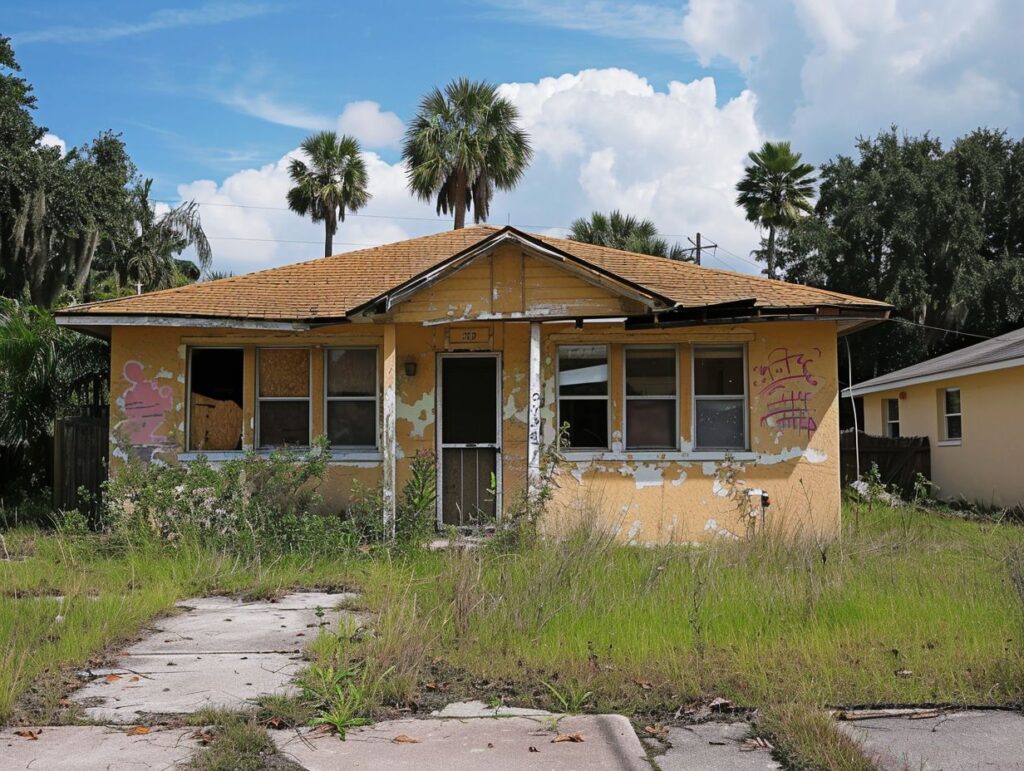Considering investing in commercial real estate in Florida? There are key factors to consider before taking the plunge, whether you’re a seasoned investor or a beginner in the real estate market.
This article offers a comprehensive overview of commercial real estate in Florida, covering the different property types, managing your investment effectively, and the steps involved in buying commercial real estate.
Explore how to handle commercial real estate in the Sunshine State by diving into the types of properties, key investment factors, buying steps, and considerations for managing your investment.
Key Takeaways:

- Location, market trends, and property type are key factors to consider when investing in commercial real estate in Florida.
- When buying commercial real estate in Florida, it is important to determine your budget and financing options, find a reliable real estate agent, and conduct due diligence on the property.
- To effectively manage commercial real estate in Florida, landlords should prioritize tenant screening and selection, maintenance and repairs, lease agreements and rent collection, and compliance with laws and regulations.
Overview of Commercial Real Estate in Florida
The commercial real estate sector in Florida is a dynamic industry that presents various investment opportunities in cities such as Tampa and Miami. This growth is fueled by a strong economy and a wide variety of property types, making it an appealing market for investors, both domestic and international.
What Types of Properties Fall Under Commercial Real Estate?
Commercial real estate covers a range of property types, such as office buildings, retail spaces, industrial properties, multi-family residential units, and more, each serving different tenant needs and investment strategies.
Office buildings are commonly chosen by professionals and corporations in search of well-equipped and conveniently located spaces for their operations. Retail spaces, on the other hand, are favored by businesses aiming to attract customers and enhance visibility. Industrial properties are typically used for manufacturing, distribution, or storage purposes. Multi-family residential units cater to individuals or families seeking rental accommodations.
Understanding the specific uses and tenants associated with each property type is essential for making well-informed investment decisions in the commercial real estate market.
What is the Difference Between Residential and Commercial Real Estate?
The main difference between residential and commercial real estate is their intended use: residential properties are meant for individual or family living, while commercial properties are used for business purposes. Commercial properties typically involve more complex lease agreements and have the potential for higher returns.
Regarding property management, residential properties usually require more frequent maintenance of amenities like swimming pools, landscaping, and common areas to ensure resident comfort and satisfaction. On the other hand, commercial properties often have multiple tenants, leading to a higher volume of maintenance requests that need prompt attention to maintain the property’s professional image.
Lease agreements for residential properties are often standard with a focus on protecting tenant rights and privacy, while commercial leases are typically more intricate. Commercial leases involve negotiations on terms such as rent increases, maintenance responsibilities, and the length of the lease period.
In terms of investment strategies, residential real estate is often viewed as more stable and consistent in rental income, appealing to investors seeking long-term appreciation and steady cash flow.
Commercial real estate, on the other hand, can offer higher potential returns but also comes with higher risks. Investing in commercial real estate requires a deep understanding of market trends, tenant demands, and overall economic conditions to make well-informed investment decisions.
What Are the Key Factors to Consider When Investing in Commercial Real Estate in Florida?
Investing in commercial real estate in Florida necessitates thoughtful evaluation of multiple factors including due diligence, zoning regulations, environmental considerations, and the specific characteristics of the local market to establish a solid investment strategy.
1. Location
Location plays a pivotal role in commercial real estate investment, with properties in sought-after areas like Tampa and Miami typically attracting high-caliber tenants and offering superior long-term value appreciation. These cities serve as prime illustrations of how location can significantly influence tenant demand and property value.
In Tampa, the downtown district functions as a commercial hotspot, drawing in a continuous flow of professionals seeking office space. Similarly, Miami’s proximity to key transportation hubs and vibrant cultural offerings renders it an appealing choice for retail and hospitality establishments.
The strong demand for real estate in these regions contributes to increased property values, presenting lucrative investment opportunities for real estate investors.
2. Market Trends

Understanding current market trends is crucial for making well-informed investment decisions in commercial real estate, as these trends can impact property values, tenant demand, and overall investment returns. Analyzing economic indicators is a fundamental aspect of comprehending market trends.
These indicators, such as GDP growth, employment rates, and inflation levels, offer insights into the general economic health and its effects on commercial real estate.
Property supply and demand dynamics further influence market trends, as an oversupply of office space or high demand for industrial properties can significantly affect investment opportunities. Moreover, broader economic conditions like interest rates and geopolitical events also play a vital role in shaping the landscape of the commercial real estate market.
3. Property Type
The choice of property for investment significantly influences the overall investment strategy, as different property types attract different tenants and present varying levels of risk and return.
For instance, investing in office buildings can be a stable long-term option due to typically longer lease durations with established corporate tenants. In contrast, retail spaces may offer higher returns in prime locations but are vulnerable to changes in consumer behavior and economic downturns.
Industrial properties, like warehouses or distribution centers, can offer consistent income streams with lower maintenance costs but might require specialized expertise in managing logistics and operations. Understanding the specifics of each property type is essential for optimizing investment potential and constructing a diversified portfolio.
What Are the Steps to Buying Commercial Real Estate in Florida?
Purchasing commercial real estate in Florida typically involves a sequence of steps. These steps include:
- Determining the budget and financing options
- Finding a reputable real estate agent
- Conducting thorough due diligence
- Negotiating the purchase price and terms
- Ultimately closing the deal and transferring ownership through a purchase and sale agreement
1. Determine Your Budget and Financing Options
Determining the budget and exploring various financing options, including commercial lenders and private investors, is the first step in ensuring that the investment in commercial real estate aligns with financial goals.
Commercial lenders offer traditional loans with fixed or variable interest rates, providing funding for real estate purchases. Private investors, on the other hand, may provide equity financing, partnering with investors to invest in the property and share profits. To determine the budget, calculate total assets, income projections, and potential expenses.
Consider factors like property value, operating costs, and potential returns to set a realistic budget that aligns with investment objectives. Understanding financial capacity will help in choosing the most suitable financing option for the commercial real estate venture.
2. Find a Reliable Real Estate Agent
Hiring a reputable real estate agent specializing in commercial real estate in Florida can significantly simplify your property search and assist you in navigating the intricacies of the market. An experienced agent can provide valuable insights into market trends, property values, and negotiation strategies, giving you a competitive advantage.
When choosing an agent, seek one with a proven track record in commercial real estate and a strong understanding of the local market. Clearly communicate your specific requirements to your agent so they can customize their search to locate properties that align with your objectives.
Collaborating with a qualified agent also means gaining access to a network of industry contacts, including lenders and legal professionals, which streamlines the buying process and ensures a seamless transaction.
3. Conduct Due Diligence on the Property
Engaging in due diligence is an important part of the purchasing process, involving a comprehensive review of the property’s title status, environmental factors, and overall condition to ensure a solid investment.
This process usually starts with examining the title reports to confirm the ownership history and any existing liens or restrictions that could impact the property’s marketability. Additionally, evaluating environmental risks is vital to prevent possible liabilities associated with contamination or hazardous materials.
Inspecting the property in person allows buyers to discover any concealed defects or maintenance concerns that could affect the property’s worth. By carefully conducting due diligence, investors can identify and resolve potential issues, ultimately protecting their investment.
4. Negotiate the Purchase Price and Terms

The negotiation of the purchase price and terms of the deal requires careful consideration of various factors and the creation of contractual agreements that represent the interests of both the buyer and the seller.
An effective strategy in negotiations involves presenting offers and counteroffers in a respectful and professional manner. It is important to clearly outline priorities and desired outcomes while actively listening to the other party’s perspective.
Understanding the needs and motivations of the opposing party allows for the tailoring of proposals to create mutually beneficial solutions. Establishing a timeline for decision-making and drafting a detailed contract that addresses all aspects of the agreement can offer clarity and prevent misunderstandings, leading to a smoother path to finalizing the deal.
5. Close the Deal and Transfer Ownership
The closing process involves finalizing the purchase and sale agreement, transferring ownership through title companies, and ensuring that all documentation reflects the chosen ownership structure.
Once the sales agreement is agreed upon, the next step is to engage with a title company, which will facilitate the transfer of ownership to the buyer. Title companies play a crucial role in conducting a thorough title search to ensure that the property has a clean title. It is essential to verify all documents during this process to prevent any potential legal issues in the future.
Different ownership structures, such as sole proprietorships, partnerships, Limited Liability Companies (LLCs), and corporations, have varying implications on liability and taxation.
What Are the Key Considerations for Managing Commercial Real Estate in Florida?
Managing commercial real estate in Florida encompasses various responsibilities such as:
- Tenant screening and selection
- Maintenance and repairs
- Lease agreements and rent collection
- Ensuring compliance with property taxes and local laws and regulations
1. Tenant Screening and Selection
Effective tenant screening and selection processes are crucial for ensuring that a commercial property attracts reliable and responsible tenants, which is essential for maintaining steady rental income and property value.
By conducting comprehensive background checks and financial assessments, property managers can acquire valuable insights into a potential tenant’s rental history, creditworthiness, and overall financial stability.
This information is vital for making informed decisions and mitigating risks such as late payments, property damage, or lease violations.
Implementing these best practices not only aids in selecting tenants who are more likely to pay rent on time and uphold lease agreements but also promotes a positive and secure rental environment for all tenants in the property, leading to long-term tenant satisfaction and improved property management outcomes.
2. Maintenance and Repairs
Regular maintenance and timely repairs are essential for maintaining the value of a commercial property and ensuring tenant satisfaction.
By proactively addressing maintenance needs, costly breakdowns can be avoided, and the lifespan of the property’s systems and equipment can be extended. Establishing a thorough maintenance schedule that includes routine inspections, cleaning, and servicing can help identify potential issues at an early stage. Effective repair procedures are crucial for promptly dealing with any unexpected problems.
Encouraging tenants to report maintenance concerns promptly and implementing a structured system for managing repair requests can streamline the process and ensure that all issues are addressed promptly.
3. Lease Agreements and Rent Collection
It is important to create clear and comprehensive lease agreements to effectively manage tenant relationships and ensure consistent rent collection.
A well-structured lease agreement should include important details such as:
- the lease duration
- rent amount and due date
- security deposit requirements
- pet policies
- maintenance responsibilities
- rules concerning subletting or lease termination
By clearly outlining these terms and conditions from the beginning, both landlords and tenants can reference the agreement to address any potential disputes that may arise during the tenancy. Proper documentation and timely rent collection processes are key elements of a successful landlord-tenant relationship, promoting trust and accountability for both parties.
4. Compliance with Laws and Regulations

Compliance with local laws and regulations, such as property taxes and zoning laws, is a crucial aspect of commercial real estate management in Florida. Property managers in Florida need to have a good understanding of the legal requirements that govern property management to avoid potential penalties or legal issues.
Property taxes are a significant consideration, as failure to pay them can result in liens or even foreclosure. Zoning regulations determine how properties can be utilized, ensuring alignment with the intended purpose of the area. Keeping abreast of legal changes is vital because regulations can change over time, affecting property management practices and responsibilities.
Frequently Asked Questions
What is considered commercial real estate in Florida?
Commercial real estate in Florida includes any property used for business purposes, such as office buildings, retail spaces, hotels, and industrial facilities.
What are the steps to handle commercial real estate in Florida?
The first step is to research and understand the local market, including property values and demand. Then, you will need to secure financing, conduct due diligence, negotiate the purchase or lease agreements, and handle all legal and financial aspects of the transaction.
Do I need a real estate agent to handle commercial real estate in Florida?
While it is not required, it is highly recommended to work with a licensed real estate agent who specializes in commercial properties. They can offer valuable expertise and guidance throughout the process.
What are the legal considerations when handling commercial real estate in Florida?
There are various legal considerations to keep in mind, such as zoning laws, environmental regulations, and property taxes. It is important to work with a knowledgeable attorney to ensure all legal requirements are met.
How can I determine the value of a commercial property in Florida?
The value of a commercial property in Florida is determined by various factors, including location, size, condition, and potential income. You can work with a real estate appraiser to get an accurate valuation.
Are there any tax benefits to owning commercial real estate in Florida?
Yes, there are tax benefits to owning commercial real estate in Florida, such as deductions for mortgage interest, property taxes, and depreciation. It is best to consult with a tax professional to understand the specific benefits for your situation.























Rate this article:
Average rating 0 / 5. Vote count: 0
No votes so far! Be the first to rate this post.
No Comments yet!